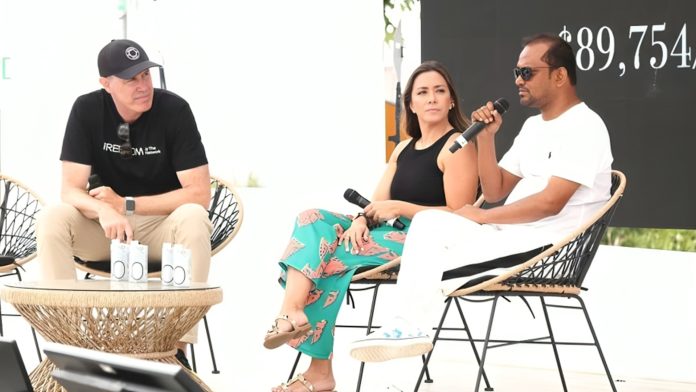The year was 2007. I was working at Adcomm as a visualizer, having just been promoted after a few years of proving myself as a dependable DTP professional. It was a big deal for me at the time. Advertising had become more than just a job—it was my passion, my purpose. That’s when my boss approached me with news that would change my life: I was being sent to AdFest in Thailand.
This wasn’t just any trip. It was my first time traveling abroad. I didn’t even have a passport. I remember the rush of getting one through the emergency service and the anxiety of securing my Thai visa, which finally came through just a day before my flight. As I boarded the plane, excitement mixed with nervousness. I thought I knew all there was to know about advertising, but in hindsight, I realize how small my world was back then.
When I arrived at AdFest, I was overwhelmed. The work on display wasn’t just good—it was breathtaking. Campaigns weren’t just selling products; they were telling stories, solving problems, and sparking conversations. Each piece of work carried an emotion, an idea, a piece of culture. It was like stepping into an entirely new universe of creativity. I walked the halls with wide eyes, jotting down notes and soaking up every detail, thinking of how I could bring that level of storytelling back to Bangladesh.
But there was another feeling—humility. The more I saw, the more I realized how far behind we were as a country. It was sobering. I promised myself then and there that I wouldn’t return to AdFest unless I was on that stage, collecting an award or addressing the audience as a speaker.
Back in Dhaka, I was determined to put everything I had learned into practice. I pitched bold, innovative ideas inspired by what I’d seen. But one by one, they were rejected. “Too risky,” they said. “The market isn’t ready for this kind of creativity.” I tried and tried, but it was like hitting a wall. Frustrated and disheartened, I left for a new role at Bitopi. Yet, even there, I didn’t find the spark I was looking for. Eventually, I moved to Grey Dhaka, hoping for a fresh start.
At Grey, the stakes were higher. We were tasked with submitting ideas for Grey’s Global Creative Council—a platform where the best creative minds across the network reviewed submissions. The first time, we submitted our work with high hopes, but none of it made the cut. I felt the sting of rejection yet again. But instead of giving up, I poured myself into the process. For the next council, my team and I came back with over 40 ideas, and this time, two were approved. It wasn’t just a win; it was a breakthrough. That was the beginning of my awards journey, and it taught me that perseverance and resilience could turn the tide.
The years that followed were a whirlwind. The Eco-Cooler project became Bangladesh’s first Gold Lion at Cannes in 2016. Campaigns like AgroBanking, the Child Marriage Prevention Loan, The Unwritten Story, and others brought home accolades from Spikes Asia, AdFest, and Cannes. These weren’t just awards—they were proof that Bangladeshi creativity could stand shoulder-to-shoulder with the best in the world. But every success carried its share of sacrifice.
One of the hardest decisions I made came when I was selected as a shortlist jury member for Cannes Lions. It was an honor, but there was a catch: my office couldn’t afford to send me. Due to Bangladesh’s restrictive foreign exchange policies, transferring funds abroad was nearly impossible. I was stuck between two options—let go of the opportunity or find a way myself. I chose the latter. I sold a piece of land I owned to finance the trip. Some might call it a bold move; for me, it was necessary. I wasn’t just going for myself—I was going to prove that Bangladesh belonged on the global stage.
That trip to Cannes was life-changing. It wasn’t just about judging work; it was about standing as a representative of my country in a space where we had rarely been seen before. It was about learning, connecting, and dreaming of a day when Bangladeshi ideas would light up these global platforms.
As I reflect on my journey, I realize that every setback, every rejection, was a step forward. From those first notes I took at AdFest in 2007 to standing on global stages with awards in hand, my story has always been about pushing boundaries—not just for myself, but for the entire Bangladeshi creative industry. It’s why I founded the Inclusive Creative Council, a not-for-profit initiative aimed at supporting creatives from underrepresented countries. This council will provide mentorship, guidance, and resources to help others compete on global platforms like Cannes Lions. My hope is to ensure that future generations don’t have to endure the same struggles I did.



But I can’t do it alone. I’m asking for volunteers, for people who believe in the power of creativity to step forward and help me make this vision a reality. Together, we can build a platform that empowers underrepresented voices, fosters innovation, and ensures that great ideas never go unnoticed because of where they come from.
As I look back on my journey—from that first flight to AdFest in 2007 to standing on global stages—I’m reminded that creativity has no borders. It just needs opportunities to shine. And with the Inclusive Creative Council, I hope to help others find their own place in the spotlight. Written by Mohammad Akrum Hossain.


